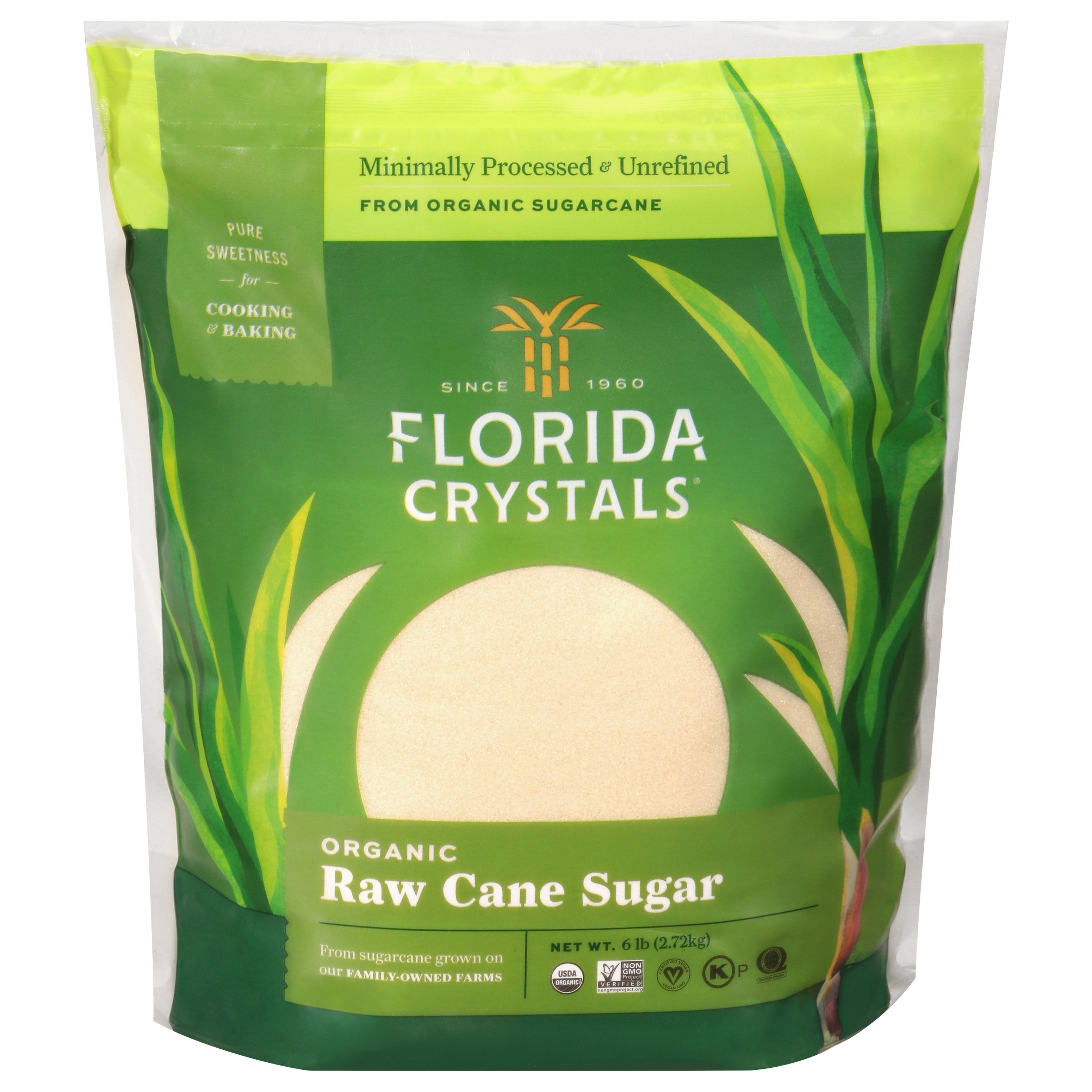The Journey of Cane Sugar Processing: From Harvest to Crystals
The Journey of Cane Sugar Processing: From Harvest to Crystals
Blog Article
A Detailed Overview of the Health And Wellness and Economic Implications of Walking Cane Sugar Processing on Local Neighborhoods
Walking stick sugar processing plays a pivotal duty in shaping the economic landscape of regional neighborhoods, using job opportunity and stimulating supplementary markets. However, the health and wellness implications related to high sugar intake can not be forgotten, as they add to climbing prices of obesity and diabetes mellitus. This nuanced vibrant invites a vital exam of just how neighborhoods can maximize economic gains while dealing with journalism health and wellness obstacles they face. The expedition of academic campaigns and lasting methods may just hold the secret to reconciling these conflicting passions. What techniques might communities execute to attain this balance?
Economic Advantages of Cane Sugar Processing
Walking stick sugar handling provides significant economic advantages that expand past the instant farming market. The cultivation and processing of sugarcane produce countless job possibilities, from farming to production and circulation. This work generation not only sustains neighborhood economic climates but likewise cultivates neighborhood growth by providing secure revenue sources for families.
In addition, the sugar market boosts ancillary services, consisting of transportation, devices supply, and product packaging solutions (Cane Sugar Processing). As these fields expand, they add to a much more robust financial framework, boosting general neighborhood strength. The export potential of refined walking stick sugar better magnifies economic benefits, positioning areas as competitive players in worldwide markets
Financial investment in modern processing centers can cause boosted performance and performance, consequently lowering waste and maximizing source use. This shift not only profits the neighborhood economic situation yet additionally supports sustainability initiatives by reducing environmental effects.
In addition, the profits created from cane sugar handling can be reinvested in local facilities, education and learning, and medical care, promoting alternative area development. Overall, the financial benefits of cane sugar processing are diverse, offering a foundation for sustaining success in agricultural regions.
Wellness Dangers Connected With Sugar Usage
Too much sugar usage poses significant wellness threats that warrant serious attention. High consumption of sugarcoated, particularly from refined beverages and foods, has been linked to numerous health difficulties. One of the most important worries is excessive weight, as sugary diets add to an increased calorie intake without giving essential nutrients. This extra can bring about metabolic conditions, including kind 2 diabetic issues, which has become increasingly prevalent in both youngsters and grownups - Cane Sugar Processing.
Furthermore, high sugar consumption is connected with cardiovascular condition. Raised blood glucose degrees can result in insulin resistance, a forerunner to various heart-related concerns. Additionally, sugar can have damaging effects on dental wellness, causing tooth cavities and gum disease, as microorganisms in the mouth grow on sugar, creating acids that wear down tooth enamel.
In addition, arising research study recommends a possible link in between high sugar intake and mental wellness disorders, such as depression and stress and anxiety. As neighborhoods come to grips with these health dangers, it ends up being important to advertise awareness and encourage healthier nutritional selections. Dealing with sugar usage is essential not just for specific wellness yet additionally for the overall well-being of regional areas, highlighting the demand for comprehensive public health techniques.
Ecological Impacts of Sugar Production
Frequently overlooked in discussions about sugar's ramifications is the substantial ecological effect of sugar manufacturing. The growing of sugarcane usually demands considerable land usage, leading to logging, loss of biodiversity, and disruption of local ecological communities. The conversion of forests and wetlands right into sugar vineyards can lead to habitat damage, harmful many types and altering eco-friendly equilibrium.
Furthermore, sugar production is resource-intensive, consuming significant quantities of water visit here for irrigation. This can cause deficiency of neighborhood water sources, detrimentally influencing both agricultural practices and community accessibility to tidy water. In addition, using chemical fertilizers and chemicals in sugarcane farming can contribute to soil degradation and water pollution, as runoff from these chemicals goes into nearby rivers and lakes, affecting water life and human health.
The ecological footprint extends to the processing stage, where energy intake and waste generation further intensify eco-friendly worries. Air pollution from burning sugarcane fields, in addition to greenhouse gas discharges, add to climate change. Therefore, the environmental ramifications of sugar production warrant major factor to consider, urging stakeholders to adopt more lasting practices to minimize these adverse results on regional ecosystems and neighborhoods.
Work Development and Area Advancement
The ecological obstacles posed by sugar manufacturing are usually counterbalanced by its possibility for financial advantages, especially in work creation and neighborhood growth. The cane sugar market functions as a significant source of employment in several rural areas, offering jobs across numerous skill levels, from farming labor to processing and distribution roles. This work not only sustains private families yet likewise contributes to the overall economic vitality of neighborhood communities.
Moreover, the facility of sugar processing centers stimulates ancillary businesses, such as transportation services, equipment supply, and upkeep carriers. As these services flourish, they create added work and strengthen local economies. The profits created from the sugar market additionally brings about enhanced tax obligation profits, which can be reinvested into social work such as infrastructure, education, and health care growth.
Furthermore, the sugar market often involves in community advancement campaigns, such as supporting local schools and wellness programs, thus boosting the top quality of life for locals. By promoting solid neighborhood ties and advertising economic development, the walking stick sugar handling field plays a crucial duty in uplifting regional populations, making it a vital component of lasting growth strategies in sugar-producing areas.
Balancing Health and Economic Development
In browsing the intricacies of cane sugar processing, a crucial difficulty hinges on balancing health and wellness factors to consider with economic growth. The sugar market dramatically adds to neighborhood economic climates by special info creating tasks, boosting relevant fields, and raising tax obligation earnings. Nonetheless, the health implications related to extreme sugar usage can lead to chronic conditions such as weight problems, diabetes, and cardio problems, which can burden public health systems and diminish labor force efficiency.

Additionally, regulative frameworks can play a crucial duty in directing industry methods towards more health-conscious and sustainable strategies. By fostering collaboration in between federal government bodies, wellness organizations, and the sugar market, neighborhoods can navigate the dichotomy of health and wellness and economic growth, ensuring that the benefits of walking stick sugar handling are equitably shared while prioritizing public health and wellness.
Verdict
To conclude, the processing of cane sugar presents both significant financial advantages and notable wellness dangers for local areas. While it fosters job development and boosts regional development, the involved wellness issues, specifically pertaining to obesity and diabetes mellitus, demand a mindful balancing act. By advertising liable consumption and investing in community education and lasting methods, it is possible to maximize financial advantages while minimizing adverse wellness results, thus making certain a healthier future for this page regional populaces.
Additionally, sugar can have detrimental results on dental health and wellness, resulting in cavities and periodontal condition, as germs in the mouth prosper on sugar, creating acids that wear down tooth enamel.
Resolving sugar consumption is important not only for specific health and wellness but also for the total well-being of neighborhood communities, stressing the need for comprehensive public wellness techniques.
Often overlooked in conversations about sugar's implications is the considerable ecological influence of sugar manufacturing. The wellness effects linked with excessive sugar usage can lead to persistent illness such as weight problems, diabetes mellitus, and cardiovascular problems, which can concern public health and wellness systems and decrease workforce productivity.

Report this page